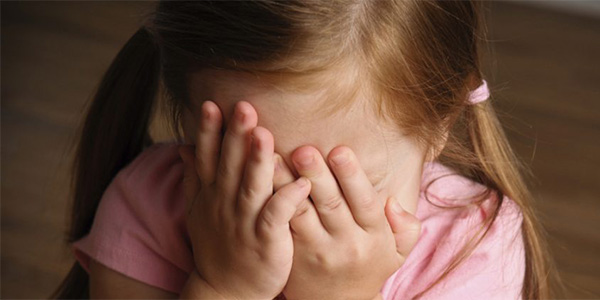Your child is so shy. How many times as parents have you been told you this. What keeps you wondering-is shyness a handicap or a sign of strength. Let’s try to unravel the mystery.
[the_ad id=”14222″]
Being shy, by definition is a feeling of apprehension, lack of comfort and awkwardness when the concerned person is around other people, especially new people or new surroundings. It makes them worry that people will think badly about them or that they will behave in an embarrassing way. It is a temperamental trait, usually appearing after two years as child becomes aware of one-self.
So, why parents should then be worried?
An extreme form of shyness is social phobia or social anxiety disorder. So as parents, it’s important to know if your child is just shy or he suffers from social anxiety disorder.
Who is a shy child?
- Uncomfortable speaking to teachers or peers
- Avoids eye contact, mumble or speak quietly when addressed by other people
- Blushes or trembles around other people
- Cries or throws a tantrum when confronted with new people
- Expresses excessive worry about doing or saying something wrong or fear that people will laugh at him
- Complains of stomach aches and want to stay home from school, field trips or parties
- Withdrawing from activities and wants to spend more time at home
- Doesn’t want to go to school or to play
How to differentiate normal shyness from social anxiety disorder?
A shy child will take longer to warm up to a situation or a person but eventually he will. This child is at peace with himself, generally quiet, behavior is overall pleasant and people are comfortable being around him.
In contrast, the anxiety of children with social phobia will remain the same or increase when they have to interact with people. They would prefer to avoid such a situation altogether for fear of being scrutinized by others.
But you need to visit your child counselor if your answers to below questions are affirmative…
- Do your child’s reactions interfere with academic/school functioning?
- Does your child’s anxiety interfere with making and keeping friends?
- Is your child missing out on fun activities that many children of the same age enjoy? (and that your child would likely enjoy)
- Do you spend time worrying about your child’s shyness?
- Is shyness or social anxiety affecting how you feel about your child, or how your child feels about himself or herself?
- Is your family environment affected by your child’s anxiety? Do you tip toe around, trying not to set him or her off?
How can you help your child?
- Talk to your child about his fears
- Teach your child to take deep breaths when he is anxious
- Remember that anxiety is a physiological response to perceived danger. Criticism or punishment will only produce greater stress
- Do Not force your child to talk or do things when you’re with other people
- Do Not call your child “shy” in front of other people
- Prepare him for social situations either by talking about it or pretending before the actual event
- Practice social skills, such as greetings, expressing concerns, or requesting help, by acting them out in a comfortable environment
- Plan playdates. Invite one friend at a time to come over for a play date. Slowly increase the number
- Encourage sleepovers. Invite one friend at a time to come to your house for a sleepover
- Encourage your child to join a group activity
- Ensure your child is sleeping well, develop a relaxing and pleasant bedtime routine
- If necessary, talk to his school teachers so they can help him too
How can teachers help a shy child?
- Express acceptance and appreciation to the child for who she is
- Let the child know that you understand what it feels like to be uncomfortable around unfamiliar people: “When I started school, I remember I felt the same way. Soon you’ll get used to things. I am here if you need me”
- Let her watch what is going on around her until she decides which classmates to approach
- Notice if a child seems lost or uncomfortable in your classroom and step in to help
- Pair the shy child with a friendly, more outgoing child for specific types of play or work
- Use small groups and cooperative class activities to involve all children
- Suggest ways that a shy child’s interests or abilities can be useful to a group or another child
- Give a child a specific task to do with another child or group
- Teach social skills, such as specific ways to approach others: “Can I play with you?” “Do you like that book, too?”
- Praise and encourage when a child is successful
- Discuss the progress with parents
If after doing all this, your child is still anxious and it is affecting his social life, do speak to a doctor.
How can a counselor help?
Serious untreated anxiety tends to get worse over time, not better, because the child learns that avoidance works in reducing the anxiety, at least in the short run. Hence, it is sometimes necessary to take help of a professional counselor who will work with your child.
A counselor will first identify whether it is plain shyness or social anxiety disorder.
CBT i.e. cognitive behavior therapy is carried out in cases of social anxiety. In CBT, the false beliefs that the child is harboring (people are laughing at me, I will make a mistake etc.) are brought out and then the child is exposed gradually to situations that usually cause him fear. The child is praised and encouraged for every small step taken and as they become accustomed to each of the fearful situations in turn, the anxiety fades, and they are ready to take on increasingly powerful ones.
Source:

